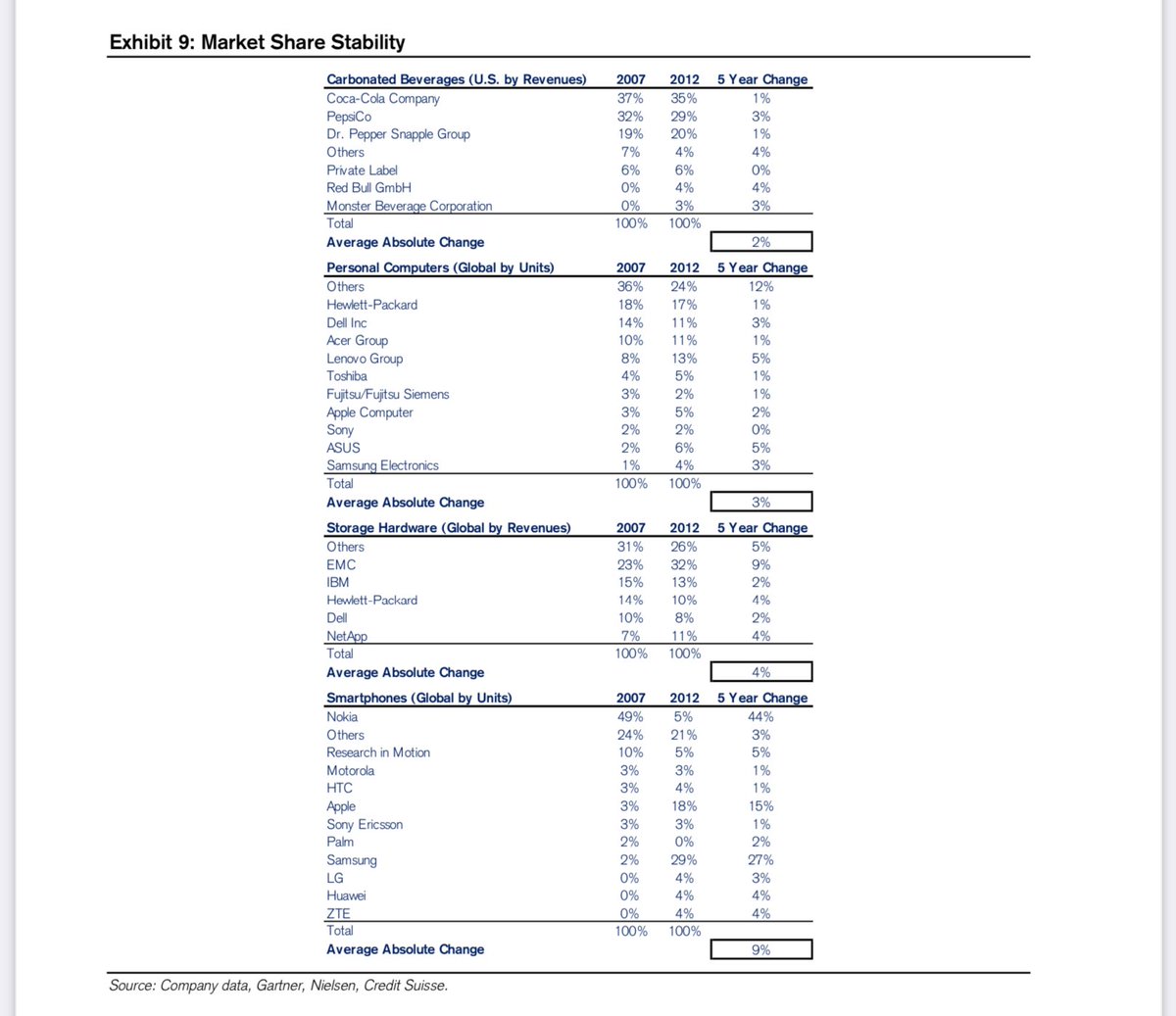Late with sharing my notes but really enjoyed this interview with Dennis Hong
Short [THREAD]
Short [THREAD]
1/
"Growth in revenues, earnings and free cash flow are the sign posts for growth in intrinsic value. Everything else is an abstraction."
This is really 1st-principles thinking. Of course, w/o abstractions like moats, positioning, etc., sustaining earnings growth is tough.
"Growth in revenues, earnings and free cash flow are the sign posts for growth in intrinsic value. Everything else is an abstraction."
This is really 1st-principles thinking. Of course, w/o abstractions like moats, positioning, etc., sustaining earnings growth is tough.
2/
Ecosystem control
Does every constituent love the business?
- Employees
- Customers
- Shareholders
- Suppliers
- Community
Love the idea of ecosystem control. It comes down to how much is the business loved by each of the 5 stakeholders.
Ecosystem control
Does every constituent love the business?
- Employees
- Customers
- Shareholders
- Suppliers
- Community
Love the idea of ecosystem control. It comes down to how much is the business loved by each of the 5 stakeholders.
3/
Three types of business ShawSpring likes:
1. Marketplaces (JustEat, Sea Limited, ANGI)
2. Vertical integration (JD, Carvana)
3. Cognitive referent (IAC)
Three types of business ShawSpring likes:
1. Marketplaces (JustEat, Sea Limited, ANGI)
2. Vertical integration (JD, Carvana)
3. Cognitive referent (IAC)
4/
Cognitive Referent
I really like this term. It's when a product/service has become a verb or associated with the general category (Uber, Zoom, Kleenex).
We did a podcast on this a little bit ago:
investingcity.org/podcast/episod…
Cognitive Referent
I really like this term. It's when a product/service has become a verb or associated with the general category (Uber, Zoom, Kleenex).
We did a podcast on this a little bit ago:
investingcity.org/podcast/episod…
5/
More on cognitive referents
- "If you have a cognitive referent, you have a moat in CAC and LTV"
- Service cognitive referents seem more sticky than products b/c you can actually say you're buying Kleenex but then go for the private label. The switching costs are lower.
More on cognitive referents
- "If you have a cognitive referent, you have a moat in CAC and LTV"
- Service cognitive referents seem more sticky than products b/c you can actually say you're buying Kleenex but then go for the private label. The switching costs are lower.
6/
Not all IRR’s are created equally
3 things ShawSpring takes into account when calculating IRR's. This is almost like handicapping or qualitative scoring.
1. Predictability of cash flows
2. Ease of execution
3. Macro/international
Not all IRR’s are created equally
3 things ShawSpring takes into account when calculating IRR's. This is almost like handicapping or qualitative scoring.
1. Predictability of cash flows
2. Ease of execution
3. Macro/international
7/
On portfolio management
- Starter position is 10% (if not willing to do this then there's not enough conviction or it's not cheap enough)
- Cap at 20% at-cost
- Try to underwrite at 30% IRR's
On portfolio management
- Starter position is 10% (if not willing to do this then there's not enough conviction or it's not cheap enough)
- Cap at 20% at-cost
- Try to underwrite at 30% IRR's
End/
I really enjoyed the interview. Tilman has a bunch of great conversations on his ValueDach YouTube channel.
Main takeaways were:
- intrinsic value is a function of sales, earnings & cash growth
- ecosystem control
- cognitive referents
And how nice of a guy Dennis is :)
I really enjoyed the interview. Tilman has a bunch of great conversations on his ValueDach YouTube channel.
Main takeaways were:
- intrinsic value is a function of sales, earnings & cash growth
- ecosystem control
- cognitive referents
And how nice of a guy Dennis is :)
• • •
Missing some Tweet in this thread? You can try to
force a refresh


















